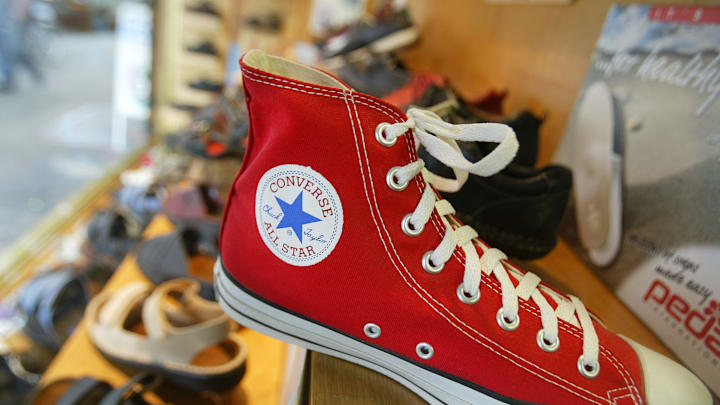The sneaker experts at Converse know not to mess with a good thing. The design of their classic Chuck Taylor All-Stars has barely changed since debuting in 1917. In addition to the iconic canvas structure and white rubber toe, every pair of Chucks features the subtler addition of two metal-ringed holes on the inner side. They look identical to the eyelets for shoelaces, but these holes serve a very different purpose.
According to Cosmopolitan, these circles aren’t meant to be filled with anything. They’re there to provide extra air circulation to your feet when they’re hot and sweaty. Converse originally designed their sneakers for athletes, and for decades they were the top shoe with basketball players. Though they’re no longer associated with intense physical activity, the shoes still include the openings for added breathability. This feature alone may not be enough to stop your feet from sweating on hot days, but after a long walk or a quick pickup game, any source of airflow makes a difference.
The extra holes aren’t necessarily there for your shoelaces, but that doesn’t mean you can’t use them that way. The video below demonstrates a way to thread your laces through the openings as you tie up your sneakers for a unique custom lacing job. Converse fans have created an entire art form out of lacing their shoes in new and interesting designs. Bar laces and lattice laces are some of the most popular alternative methods.
Today’s Chuck Taylor All-Stars stick close to the original design, but Converse has made some notable changes over the decades. In 1962, the shoe company launched its first oxford Chucks after only offering high-tops. Converse made the sneakers available in colors other than black and white for the first time four years later. You can read more facts about the iconic American shoe here.
